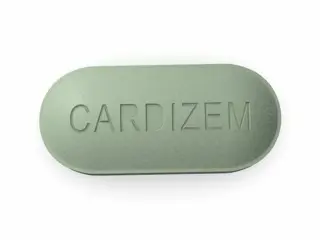| Package | Dosage | Price | Price per Dose | |
|---|---|---|---|---|
| Dosage: 30mg | ||||
| 360 pill | 30mg | NZD472.22 | NZD1.31 | |
| 270 pill | 30mg | NZD371.69 | NZD1.38 | |
| 180 pill | 30mg | NZD264.15 | NZD1.47 | |
| 120 pill | 30mg | NZD196.35 | NZD1.64 | |
| 90 pill | 30mg | NZD158.95 | NZD1.75 | |
| 60 pill | 30mg | NZD114.53 | NZD1.89 | |
| 30 pill | 30mg | NZD60.76 | NZD2.03 | |
| Dosage: 60mg | ||||
| 360 pill | 60mg | NZD647.55 | NZD1.80 | |
| 270 pill | 60mg | NZD493.26 | NZD1.82 | |
| 180 pill | 60mg | NZD331.95 | NZD1.85 | |
| 120 pill | 60mg | NZD226.75 | NZD1.89 | |
| 90 pill | 60mg | NZD179.99 | NZD1.99 | |
| 60 pill | 60mg | NZD123.88 | NZD2.08 | |
| 30 pill | 60mg | NZD67.77 | NZD2.22 | |
| Dosage: 90mg | ||||
| 360 pill | 90mg | NZD958.48 | NZD2.67 | |
| 180 pill | 90mg | NZD500.27 | NZD2.78 | |
| 120 pill | 90mg | NZD338.96 | NZD2.83 | |
| 90 pill | 90mg | NZD266.49 | NZD2.97 | |
| 60 pill | 90mg | NZD187.00 | NZD3.11 | |
| 30 pill | 90mg | NZD100.50 | NZD3.34 | |
| Dosage: 120mg | ||||
| 360 pill | 120mg | NZD1,061.35 | NZD2.95 | |
| 270 pill | 120mg | NZD813.54 | NZD3.02 | |
| 180 pill | 120mg | NZD556.38 | NZD3.09 | |
| 120 pill | 120mg | NZD388.06 | NZD3.23 | |
| 90 pill | 120mg | NZD306.23 | NZD3.39 | |
| 60 pill | 120mg | NZD217.39 | NZD3.62 | |
| 30 pill | 120mg | NZD135.57 | NZD4.51 | |
| Dosage: 180mg | ||||
| 270 pill | 180mg | NZD1,161.87 | NZD4.30 | |
| 180 pill | 180mg | NZD794.84 | NZD4.42 | |
| 120 pill | 180mg | NZD535.34 | NZD4.47 | |
| 90 pill | 180mg | NZD423.12 | NZD4.70 | |
| 60 pill | 180mg | NZD299.22 | NZD5.00 | |
| 30 pill | 180mg | NZD163.62 | NZD5.47 | |

Diltiazem Description
Overview of Diltiazem
Diltiazem is a medication commonly prescribed to manage various cardiovascular conditions. It belongs to the class of drugs known as calcium channel blockers. By inhibiting the influx of calcium ions into the muscle cells of the heart and blood vessels, Diltiazem helps to relax the vascular smooth muscle and reduce the workload of the heart. This mechanism makes it effective in lowering blood pressure, controlling angina, and preventing certain types of abnormal heart rhythms.
Uses and Benefits
This medication is primarily used to treat hypertension, helping to lower high blood pressure and decrease the risk of strokes and heart attacks. It is also prescribed for angina pectoris, a condition characterized by chest pain caused by reduced blood flow to the heart. Additionally, Diltiazem can help manage certain arrhythmias like atrial fibrillation or flutter, restoring normal heart rhythm. Many patients find that Diltiazem provides significant relief from symptoms and improves overall cardiovascular health.
How to Take Diltiazem
Diltiazem is available in various forms, including tablets, extended-release formulations, and injectables. The dosage depends on the specific condition being treated, the patient's response, and other health factors. It is important to follow your healthcare provider’s instructions closely. Usually, it is taken orally with or without food. Consistency is key to maintaining stable blood levels of the medication. Do not stop taking Diltiazem abruptly without consulting your doctor, as this may lead to a resurgence of symptoms or other complications.
Possible Side Effects and Precautions
Like all medications, Diltiazem can cause side effects, although not everyone experiences them. Common adverse effects include dizziness, flushing, headache, swelling in the ankles or feet, and fatigue. Some individuals may experience gastrointestinal symptoms such as nausea or constipation. Serious side effects are rare but may include allergic reactions, irregular heartbeats, or worsening of existing heart conditions. It is crucial to inform your healthcare provider if you have a history of heart block, low blood pressure, or liver problems before starting this medication. Monitoring and regular check-ups are recommended to ensure safe and effective therapy.
Interactions and Contraindications
Diltiazem can interact with other medications, affecting how they work or increasing the risk of side effects. For example, combining it with other blood pressure medications, beta-blockers, or certain antifungal drugs can enhance its effects, leading to hypotension or heart issues. Certain drugs may require dosage adjustments or should be avoided altogether. Patients with severe heart failure, unstable angina, or certain conduction disorders should not use Diltiazem unless explicitly prescribed by a healthcare professional. Always disclose all medications you are taking to your doctor to prevent potential interactions.
Conclusion
Overall, Diltiazem is a widely used and well-established medication in the treatment of various heart-related conditions. Its effectiveness in controlling blood pressure, angina, and arrhythmias makes it a valuable option for many patients. Responsible use, under medical supervision, ensures the benefits outweigh the risks. Proper adherence to prescribed doses and routine monitoring help to maximize therapeutic outcomes and reduce the possibility of adverse effects.
